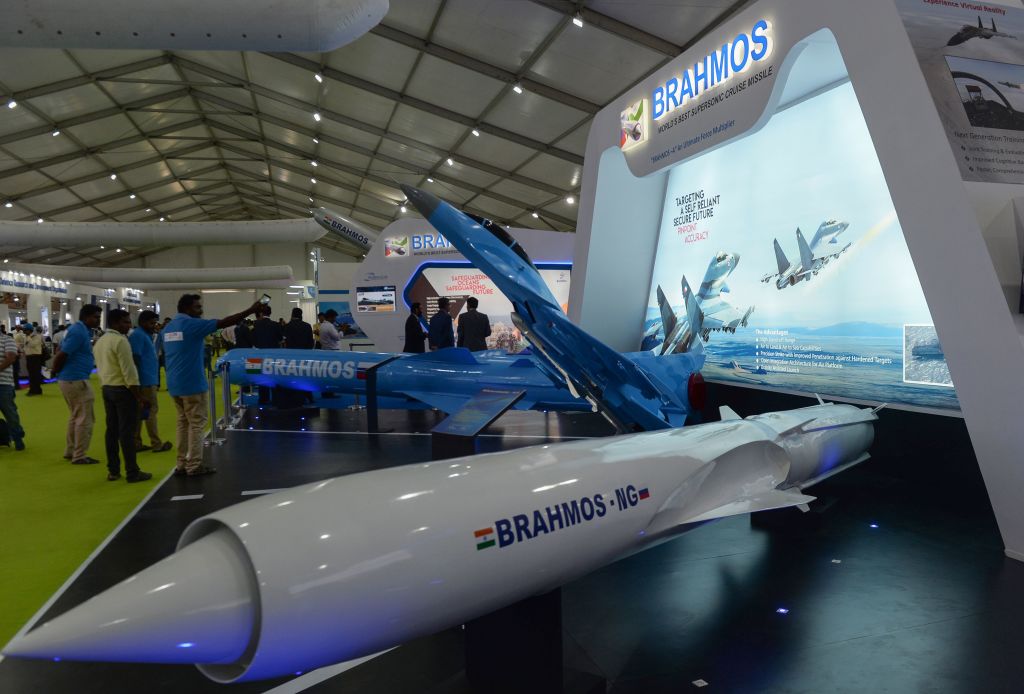- Sunday, April 20, 2025

By: Shubham Ghosh
HERE are news in brief on Indian economy and business for Thursday, February 22, 2024:
India’s Cabinet Committee on Security (CCS) on Thursday sanctioned a deal worth Rs 19,000 crore (£1.8 billion) to acquire over 200 BrahMos supersonic cruise missiles and associated equipment for the Indian Navy, news agency PTI reported citing sources. The missiles will largely be deployed on various warships to enhance overall combat capabilities of the Navy, they said. It is learnt that the proposal approved by the CCS entails acquisition of a mix of BrahMos missiles having a range of around 290 kilometres (km) and the latest extended range variant of the weapon with a range of around 450 km. BrahMos Aerospace Pvt Ltd, an India-Russian joint venture, produces the supersonic cruise missiles that can be launched from submarines, ships, aircraft, or land platforms.
Prime minister Narendra Modi on Thursday appealed to farmers and other stakeholders associated with the cooperative sector to make Gujarat Cooperative Milk Marketing Federation Limited (GCMMF), which owns the ‘Amul’ brand, the world’s No.1 dairy company from its current eighth position. He was addressing nearly 100,000 people, mostly cattle rearers and farmers, gathered at the Narendra Modi Stadium in Ahmedabad for the golden jubilee celebration of the GCMMF. Giving an overview of India’s booming dairy sector, Modi said it is growing at a rate of six per cent per annum while the global dairy sector is growing at two per cent. “At present, Amul (GCMMF) is the world’s eighth biggest dairy sector company. You all need to make it the world’s biggest dairy company,” the PM said in his address.
Google has instructed suppliers to commence production of its Pixel smartphones in India by the earliest next quarter, according to a report by Nikkei Asia. This move aligns with Google’s strategy to diversify its supply chain away from China and tap into India’s growing smartphone market. The company aims to ship over 10 million Pixel phones this year, following a similar milestone last year. The production will initially focus on the high-end Pixel 8 Pro, with manufacturing slated to begin in the April-June quarter in southern India, the report quoted several sources as saying. This will be followed by production of the Pixel 8 in the north of the country around the middle of this year, the report added.
India Ratings and Research (Ind-Ra) projects a 6.5 per cent growth for the Indian economy in the 2024-25 fiscal, 50 basis points lower than recent forecasts made by the federal government and the Reserve Bank of India (RBI). The agency, however, noted a positive trajectory in GDP growth, attributing it to sustained government capex, robust corporate performance, global commodity price softness, and the potential for a new private corporate capex cycle. However, it highlights risks, citing that government capital expenditure largely drives aggregate demand, with consumption still skewed towards households in the upper 50 per cent income bracket. “Prevailing consumption demand is still skewed in favour of the goods and services consumed by households belonging to the upper 50 per cent of the income bracket,” the ratings agency said.
Greece and India have a “lot of complementarities” in shipping, pharma and other sectors, Greek prime minister Kyriakos Mitsotakis said on Thursday as he emphasised that his country is the natural entry point for Indian companies to tap the European market. Addressing the ‘India-Greece Business Forum’, organised by FICCI and Enterprise Greece in Mumbai, he said Greece and India have a “lot of complementarities” in shipping, pharma, such as defence, drones, agriculture, information and communication technology, and tourism. He said, “We expect to make concrete announcements very soon regarding the signing of the mobility migration agreement, enabling more Indian labour to come to Greece in an organised manner.”
Indian vice president Jagdeep Dhankhar on Thursday lamented that the health and education sectors in the country have become an “industry” unlike old days when they were a means to serve the society. He also expressed concern that despite their education, several people were succumbing to diseases due to their lifestyle. Addressing an event of physicians in New Delhi, Dhankhar said health and education were always considered to be a service and a means to give back to the society. He said health and education were not seen as services from which money could be earned. “Now these two sectors have become industry,” he told the gathering. “I strongly recommend that we get back to the old groove. That will do a lot of good to our nation and to humanity,” he said.
(With agencies)